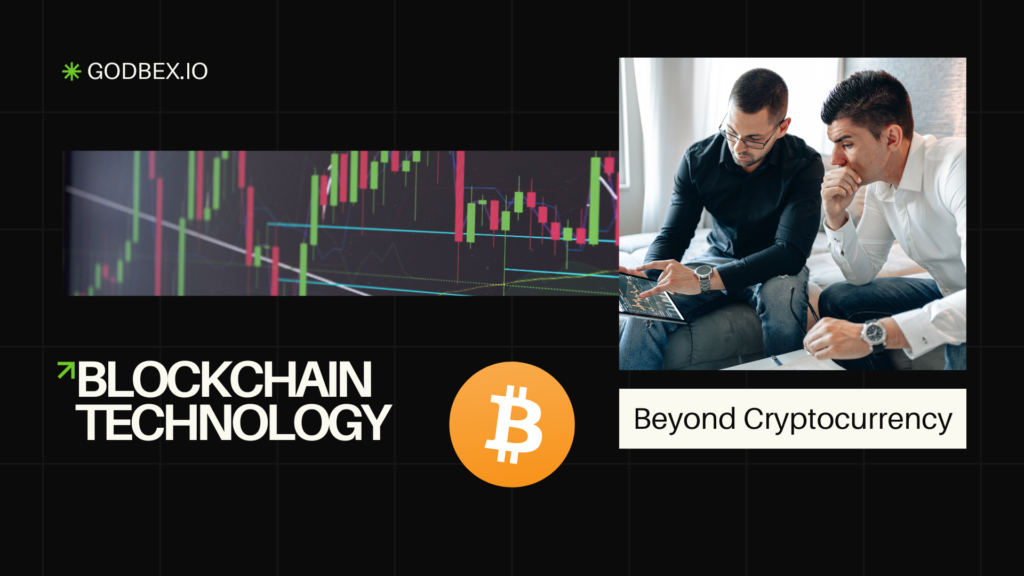Explore Blockchain Technology: Beyond Cryptocurrency
Introduction
When most people hear the word “blockchain,” they immediately think of Bitcoin or Ethereum. But blockchain is far more than just cryptocurrency. In fact, it’s one of the most groundbreaking technologies of the 21st century—offering solutions that extend well beyond digital currencies.
From transforming supply chains to revolutionizing healthcare, voting systems, and real estate, blockchain technology beyond cryptocurrency is rapidly redefining how we store, share, and verify data.
In this article, we’ll explore the core principles of blockchain and dive into its expanding use cases across a variety of industries, showcasing how decentralized technology is reshaping our world.
What Is Blockchain Technology?
At its core, a blockchain is a distributed digital ledger that records transactions in a secure, transparent, and immutable way. Each block of data is chronologically added to a chain and shared across a network of computers (nodes), making it nearly impossible to alter once confirmed.
Key features include:
- Decentralization – No central authority; data is maintained by the network.
- Transparency – All transactions are visible to participants.
- Security – Cryptography ensures that data is tamper-resistant.
- Smart Contracts – Self-executing agreements coded on the blockchain.
These attributes make blockchain ideal not just for financial systems but also for any scenario requiring trust, verification, and security.
Blockchain Use Cases Beyond Cryptocurrency
The real power of blockchain lies in its versatility. Let’s examine the industries currently benefiting from blockchain applications beyond crypto.
Supply Chain and Logistics
Transparency and traceability are vital in supply chains. Blockchain provides a single source of truth, allowing businesses and consumers to:
- Track goods from origin to delivery in real-time
- Authenticate products and reduce counterfeiting
- Improve inventory management and reduce waste
IBM’s Food Trust and VeChain are excellent examples of blockchain being used to track the provenance of food and products, ensuring authenticity and safety across global supply chains.
Healthcare and Medical Records
Medical data is sensitive, fragmented, and often insecure. Blockchain allows:
- Secure storage of electronic health records (EHRs)
- Patient-controlled access to data
- Tamper-proof audit trails for clinical trials and prescriptions
Projects like Medicalchain and Guardtime enable data integrity and interoperability between healthcare providers without compromising patient privacy.
Real Estate and Land Ownership
Buying or selling property involves mountains of paperwork and trust in intermediaries. Blockchain simplifies this by:
- Digitizing property titles
- Enabling peer-to-peer transactions via smart contracts
- Preventing fraud with immutable land records
Propy and Ubitquity are leading platforms in blockchain-powered real estate, making transactions faster, cheaper, and more secure.
Digital Identity and Authentication
Traditional identity systems are prone to fraud and data breaches. Blockchain-based identity solutions offer:
- Self-sovereign identity (users control their data)
- Encrypted, verifiable credentials
- One-click verification for banking, voting, or employment
Projects like Civic, Bloom, and uPort are developing decentralized identity frameworks that can replace centralized databases vulnerable to hacks.
Voting and Governance
Blockchain can revolutionize democracy by:
- Creating tamper-resistant voting systems
- Enabling remote and secure online voting
- Offering transparent election auditing
Pilot projects in countries like Estonia and Switzerland are showing how blockchain-based voting could enhance voter turnout and trust in electoral processes.
Intellectual Property and Copyright
Artists, musicians, and content creators often struggle to prove ownership or receive fair compensation. Blockchain can:
- Register ownership via NFTs or metadata hashes
- Enable micro-payments through smart contracts
- Track distribution and usage of digital content
Audius, Async Art, and Origin Protocol are enabling creators to tokenize and monetize their work directly, cutting out intermediaries.
Education and Credentials
Academic fraud is a growing problem. Blockchain ensures:
- Tamper-proof diplomas and certificates
- Verifiable education records
- Global recognition of skills and achievements
Institutions like MIT and University of Nicosia already issue blockchain-based diplomas, helping students securely store and share credentials.
Insurance and Claims Management
Insurance is full of bureaucracy and fraud risk. Blockchain simplifies the process through:
- Smart contracts that automate policy issuance and claims
- Transparent claim history
- Instant payouts for verifiable incidents
Companies like Etherisc and Chainlink are using blockchain to make insurance more efficient and trustworthy.
Energy and Sustainability
Blockchain supports the creation of decentralized energy markets, where users can:
- Trade solar power peer-to-peer
- Track carbon credits and emissions
- Optimize grid usage with IoT integrations
Projects like Power Ledger, Energy Web Token, and SunContract enable more sustainable, efficient, and local energy solutions.
Charity and Philanthropy
Trust is critical in the nonprofit sector. Blockchain increases donor confidence by offering:
- Transparent donation tracking
- Proof of impact and fund allocation
- Reduced administrative costs
Platforms like Giveth and Alice let donors see exactly how their money is used, building greater accountability in charitable efforts.
Banking the Unbanked
An estimated 1.7 billion people globally are unbanked. Blockchain can help by:
- Enabling mobile wallets and micro-loans
- Reducing cross-border remittance fees
- Creating decentralized finance (DeFi) alternatives to banks
Apps like Celo, Pundi X, and Reserve are building financial tools for people in developing economies, where traditional banking is inaccessible.
Challenges and Considerations
Despite its potential, blockchain adoption faces several challenges:
- Scalability: Some blockchains can’t handle high transaction volumes
- Regulation: Legal frameworks are still evolving
- Interoperability: Different blockchains often don’t “talk” to each other
- Public perception: Still closely tied to crypto speculation
But with continued innovation in Layer 2 solutions, cross-chain bridges, and enterprise blockchain platforms, these issues are gradually being addressed.
Conclusion
Blockchain is far more than a vehicle for cryptocurrency speculation—it’s a transformational technology with the power to reshape industries, empower individuals, and increase transparency in a digital age.
Whether it’s verifying identities, improving supply chains, or decentralizing access to finance, blockchain beyond cryptocurrency is unlocking new levels of efficiency, trust, and innovation.
As adoption grows and ecosystems mature, businesses and users alike must stay informed and ready to leverage decentralized technology for real-world problems.
